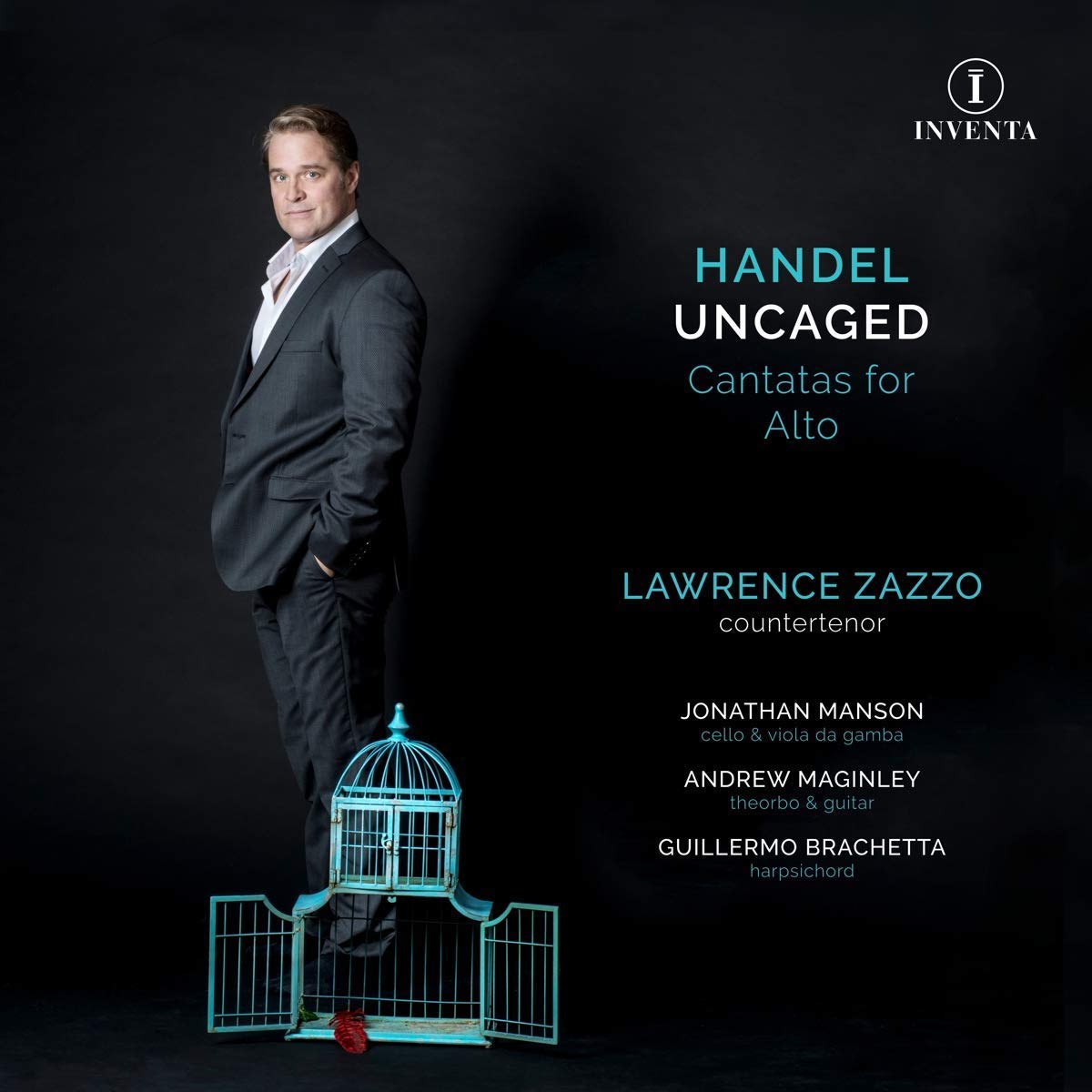Cantatas for Alto
Lawrence Zazzo cT, Jonathan Manson cello/gamba, Andrew Maginley theorbo/guitar, Guillermo Brachetta harpsichord
74:26
resonus Inventa INV1002
The curious title of the CD is inspired by one of the most unusual of the cantatas composed during Handel’s youthful Italian sojourn, Amore uccellatore. The work itself has an odd background. It consists of two short cantatas, Venne voglia (HWV 176) and Vendendo amore (HWV 175), both extant in autograph scores and part of the repertoire. However a further unique and un-attributed copy in the Fitzwilliam Museum in Cambridge includes a dozen more numbers continuing a narrative cast throughout in the first person. Handel scholars have until recently remained undecided about the authenticity of the continuation, but recent work now adds to the likelihood of his authorship. The result is the longest of all the solo cantatas (not, pace Lawrence Zazzo’s notes, all the cantatas), running to no fewer than 30 numbers alternating recitative and mostly very brief arias, some simple AB structures rather than da capo. The tragi-comic text is rather different to the Arcadian topics usually found in cantatas of this period, consisting as it does of the first person narrative of a bird as it tries to evade capture (and re-capture) by Cupid and five women. The metaphor is obvious, but the ending, in which the bird is finally left in peace after losing its tail (and thus its beauty), is not clear. The arias, a mixture of the light-hearted and serious, are necessarily contrasted for such a lengthy work. As Zazzo notes, it is unlikely that the cantata would have been given uninterrupted, so he has found short instrumental pieces and improvisations to serve as links, a formula that works well.
In addition to Amore uccellatore three other early alto cantatas are included: Udite il mio consiglio, HWV 172 (1707), originally for soprano, but here heard in the shortened alto version; Stanco di più soffrire, HWV 167a (1708); and Figli del mesto cor, HWV 112, chosen by Zazzo for their ability to form a satisfying group.
As is clear from the foregoing, it is evident that much thought and preparation have gone into the programme, so it is regrettable to have to report that the performances in general do not do it full justice. The principle problem is the excessively slow tempo at which most of the more reflective arias are taken, which coupled with Zazzo’s inability to bring texts to life results in interpretations that remain obstinately one-dimensional. This applies particularly to the three additional cantatas, which have pastoral texts conforming to the archetypal love concerns of shepherds and shepherdesses being resolved or unresolved, as the case may be. Zazzo seems to find more to interest him in the text of Amore uccellatore, particularly in the lighter arias, which he projects with greater intent and agreeable good humour. Yet vocally, too, I have heard him in better voice; the slow tempos contributing to both occasional insecurity and excessive vibrato, prevalent in sustained passages. Nonetheless there is always pleasure to be had from Zazzo’s pleasing timbre and ease of production. His support is technically unexceptionable, but there too I find little to convey the Italianate verve or lyricism inherent in the music of the young Handel. Ornamentation is fairly un-ambitious, with turns poorly articulated and no sign of such standard improvisatory devices as the messa di voce or trill. Otherwise on a musical level there is little here to complain of, but it is to be honest all a little worthy and ultimately uninspiring. The CD’s greatest value is its inclusion of the first complete recording of Amore uccellatore.
Brian Robins
Click HERE to buy the CD on amazon.co.uk.
